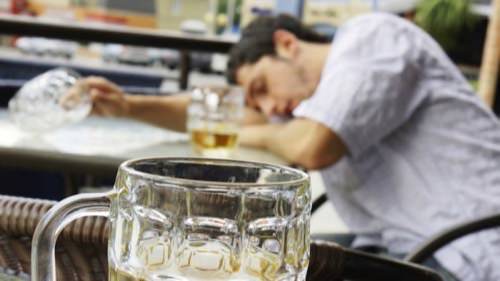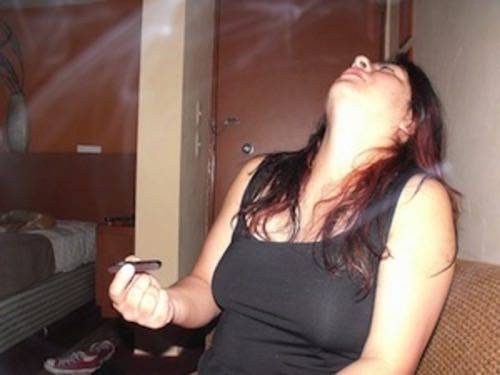
You find yourself drunk and alone at the local pub – too nervous to talk to the people around you. You pull out your smartphone. You tap the Facebook app. You update your status: “Party hard!”
A few moments pass. Still drunk, still alone, still nervous, you return to Facebook: “You guys missed out on an awesome time!” with a photo of your drained glass.
Anxiety & Alcohol Predict Facebook Use
Apparently, this scenario is more common than you might think. It turns out that being drunk and scared makes you want to use Facebook more. In fact, anxiety and alcohol use significantly predict usage and “emotional connectedness to Facebook.” For college freshmen, anyway.
For his master’s thesis, Missouri University doctoral student Russell Clayton surveyed 229 college freshmen students living in dorms. He asked them to rank their perceived levels of loneliness, anxiety, alchohol use and marijuana use, then measured their “connectedness” to Facebook.
Clayton found that students who reported higher levels of anxiousness and alcohol use “appeared to be more emotionally connected with Facebook.” What’s more, “people who perceive themselves to be anxious (in general) are more likely to want to meet and connect with people online, as opposed to a more social, public setting.”
Numerous studies show anxiety is rising in American society, and Facebook – along with its advertisers – could make out like bandits. For example, Clayton’s survey revealed that students with a stronger emotional connectedness to Facebook became “more motivated” to drink just by viewing friends’ pictures and statuses showing them drinking.
Paging the Bud Light advertising team!
Pot Smokers Love Facebook Less

Oddly enough, this wouldn’t work for those selling or advertising marijuana over Facebook – if it were legal. According to the research, marijuana use “predicted the opposite: a lack of emotional connectedness with Facebook.” According to Clayton, “Marijuana use was negatively related to emotional connectedness to Facebook and unrelated to Facebook connection strategies. This indicates that the more a participant engages in marijuana use the less emotionally connected they feel toward Facebook.”
The reason for the difference? Clayton posits that marijuana usage is “much less of a social process,” unlike drinking beer and alcohol.
The study did not examine other social media platforms. Too bad. It would be great to know, for example, if there is a correlation between marijuana use and connectedness to Instagram, for example. Or if people who are generally less prone to anxiety prefer MySpace to Facebook. Do humanities students who drink too much have a Twitter account?
Study Notes: Participants in Clayton’s study had on average between 301-400 Facebook friends. The average time spent on Facebook per day was nearly one hour.
Emotional connectedness was defined as “how emotionally attached students feel toward Facebook.” To gauge this, students were asked to rate on a 7-point scale their response to the question “If Facebook shut down, I would be sad.”
Lead image courtesy of Shutterstock. Smoking image courtesy of Flickr.
















